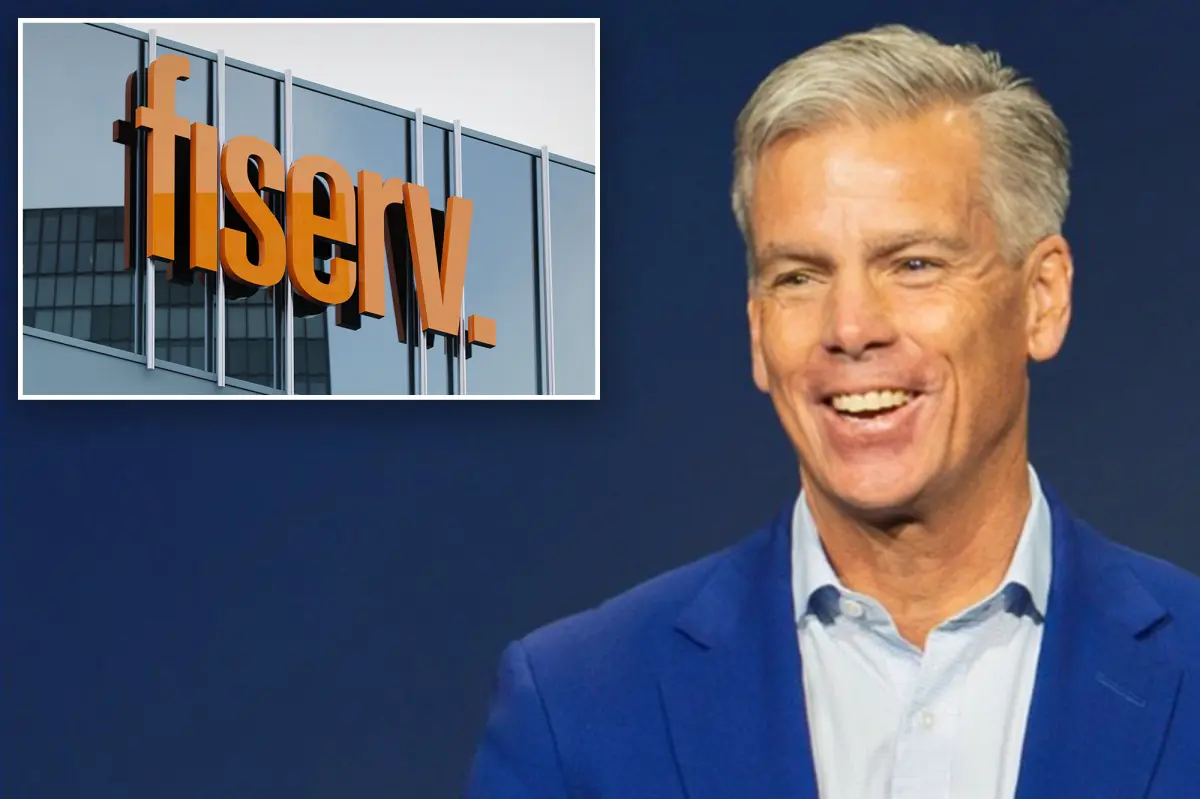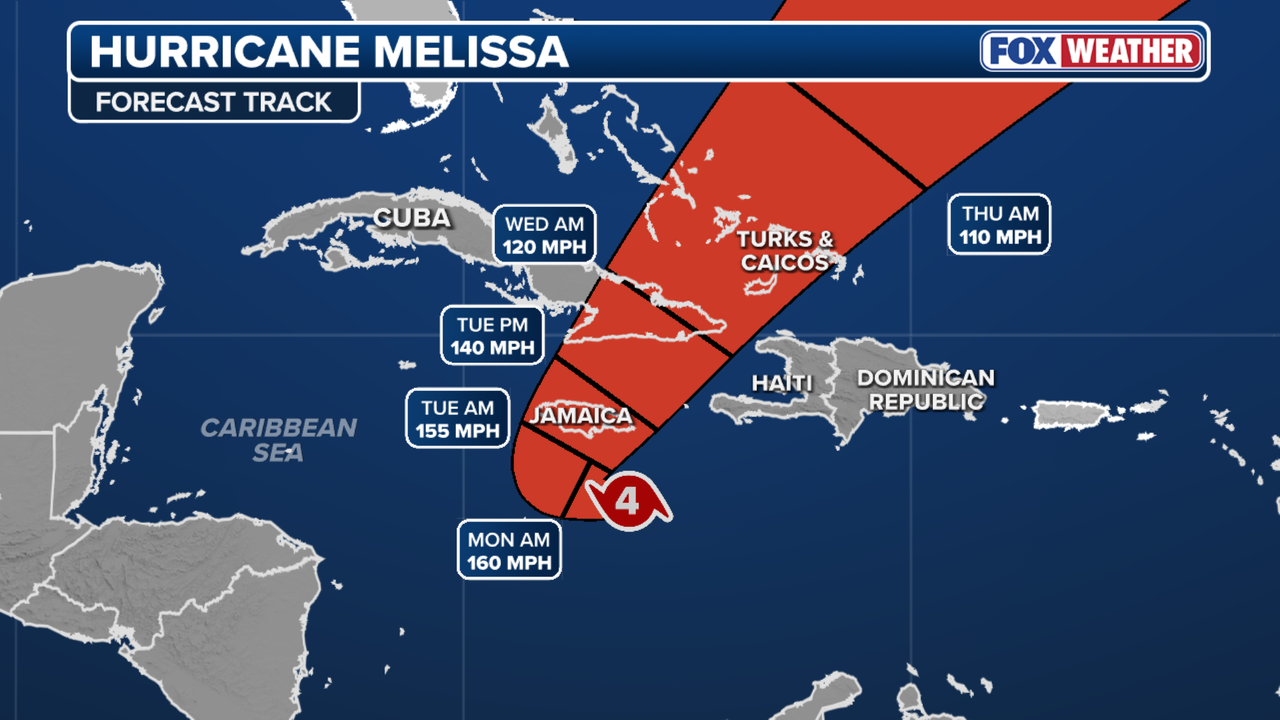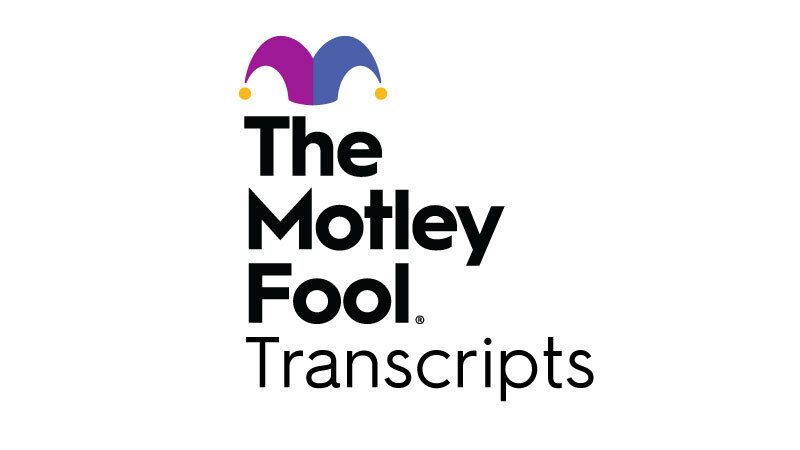Copyright New York Post

Fiserv’s shares plummeted more than 40% on Wednesday and were set for a record single-day drop after the payments software company reported results below estimates and cut its growth forecast for the second consecutive quarter, with analysts calling the earnings “shockingly bad.” The disappointing earnings highlight growing pressure on the fintech’s core payments and merchant business, which has struggled to maintain momentum amid fierce competition and a slowdown in consumer spending. Fiserv also announced an overhaul of its senior leadership, appointing a new finance chief and two co-presidents. Management changes of this scale often point to internal challenges or a shift in strategy, deepening investor concerns about the company’s near-term outlook. “We can no longer recommend Fiserv given what we consider a shocking third-quarter revenue and EPS miss and abrupt management transition,” analysts at William Blair said, as the brokerage downgraded the stock to “market perform” from “outperform.” “This performance suggests to us that management took its eye off the ball at some point earlier this year.” The broader economy faces multiple headwinds, with leading companies reporting slower consumer spending, particularly among lower-income households, as inflation and high interest rates weigh on budgets. “Investor sentiment was already very weak,” analysts at BTIG said, adding that the “abysmal” third-quarter results and outlook for the year would only challenge investor appetite further. Fiserv is primarily a business-to-business payments firm and provides critical back-end infrastructure for banks and financial institutions, underpinning key payment and merchant services that drive daily operations. Fintech stocks also took a hit after Fiserv’s results, with FIS down 8.8%, Global Payments falling 6.7%, while Block and Jack Henry were down 3% and 4%, respectively. “The traditional fintech group is selling off, but we think Fiserv’s challenges are company specific,” William Blair said. Questions mount “We need to change the way we forecast and communicate about our business and engage with analysts and investors,” Fiserv CEO Mike Lyons said in a call with analysts. Lyons said the forecast reset was taken after a “rigorous” analysis during the third quarter as the firm shifts its strategic focus away from short-term revenue initiatives, while experiencing a slowdown in growth in its Argentina business. “This reset is about aligning structural versus cyclical growth and sustainable revenues and expenses versus short-term results,” Lyons said. Fiserv now expects annual revenue growth of 3.5% to 4%, compared with its prior forecast of 10%. Annual adjusted profit per share is now expected between $8.50 and $8.60, down from its earlier forecast of $10.15 to $10.30. “Our current performance is not where we want it to be nor where our stakeholders expect it to be,” Lyons said in a statement. Slowing growth in Clover, Fiserv’s point-of-sale and business management platform, has been a key concern for investors this year. Fiserv reported third-quarter adjusted EPS of $2.04 per share, far below Wall Street estimates of $2.64 per share, according to data compiled by LSEG. The results were impacted by significant deterioration of the Argentine peso and a jump in interest rates in Argentina during the quarter, Fiserv said. Adjusted revenue of $4.92 billion also came in well below expectations of $5.36 billion, as its merchant solutions and financial solutions businesses lagged. “The pressure the company is already seeing in the financial segment materialized much earlier than we anticipated, and the magnitude of headwinds in both segments is concerning,” brokerage JPMorgan said. Payments firm PayPal flagged smaller basket sizes and cautious shoppers earlier this week. Management overhaul As part of the leadership overhaul, Fiserv named Paul Todd its chief financial officer. He previously was the finance boss of Global Payments and succeeds Robert Hau, who is set to become a senior adviser through the first quarter of 2026. The leadership reshuffle comes as Lyons, who took the helm at Fiserv only months ago, seeks to steer the company through mounting investor concerns and a challenging business environment. Amid intense investor scrutiny around Clover, Lyons said earlier this year he had walked into a “bit of a firestorm.” Including session moves, the stock has lost nearly 64% of its value so far this year. If current losses hold, they will erase roughly $29 billion from the company’s market cap, according to Reuters’ calculation. “Our view is that investor confidence will be shaken to the extent that Fiserv becomes a multi-quarter turnaround with significantly diminished visibility,” William Blair said.



